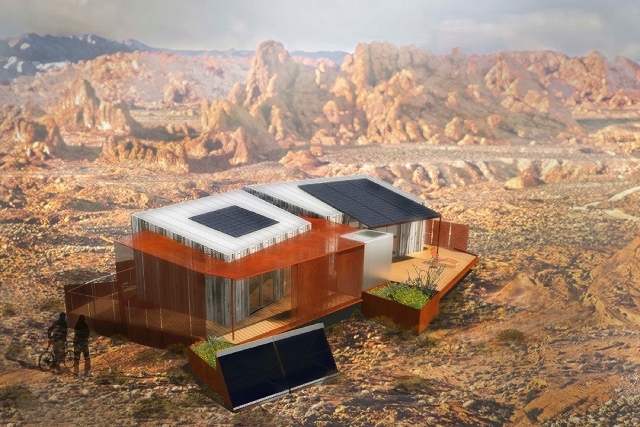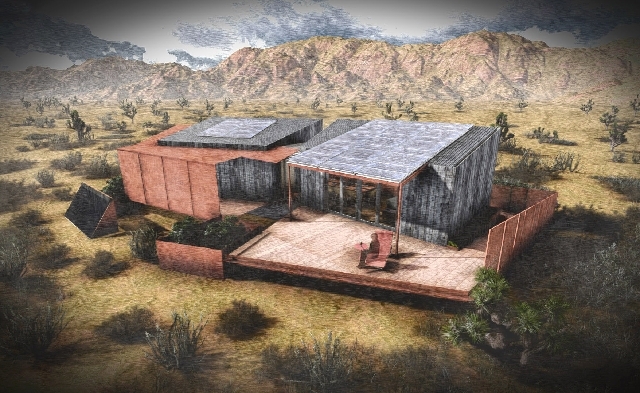UNLV students hope to bring home trophy in Solar Decathlon


How do you get architecture and engineering students to work together before graduation?
Challenge them.
For the first time, a team of 60 students from the University of Nevada, Las Vegas will compete in Solar Decathlon, a green-building competition hosted by the U.S. Department of Energy.
The competition, which has taken place five times since 2002, challenges collegiate teams to create solar-powered houses that are attractive, affordable and efficient. Solar Decathlon aims to educate students and the public about solar energy, demonstrate the comfort and affordability of green homes, and provide training for future builders.
Twenty teams will compete in the final event, Oct. 3-13 at Orange County Great Park in Irvine, Calif. The winner is determined based on performance in 10 contests that judge architecture, engineering, market appeal, affordability and home entertainment, among other categories.
UNLV’s entry, DesertSOL, is 754 square feet and is marketed as a vacation home, valued at $320,000. According to an animated walkthrough on Team Las Vegas’ website, solardecathlon.unlv.edu, it is meant for weekend getaways or seasonal retreats, and “offers an escape, a basecamp for desert explorations.”
“We did market analysis,” said project leader and architecture graduate student Alexia Chen. “We can’t compete with foreclosures,” she said, but the team can compete with energy-efficient second homes, which are popular in the Southwest, including California, Arizona and Nevada.
Locally, Chen imagines the house being placed near scenic destinations such as Red Rock Canyon National Conservation Area, Valley of Fire State Park, Lake Mead or Lake Mohave.
Green building revenue totaled
$85 billion in 2012, according to a study by McGraw-Hill Construction, and is expected to reach $98 billion to $106 billion this year. Commercial construction is 44 percent green, and green residential construction is on the rise.
Last year, 20 percent of homes built were energy-efficient; this year, that number is expected to rise to 22 percent to 25 percent.
DesertSOL is a modular, two-room dwelling that is controlled by smart pad. Its exterior is made of preweathered materials, meant to withstand the harsh desert environment.
It is outfitted with photovoltaic panels and solar-thermal collectors, which provide enough power for the house to sustain itself and generate power.
The house’s framing saves on lumber and improves insulation. And a digitally controlled sliding screen provides shade in summer and retreats in winter to allow for passive warming.
DesertSOL also collects water for a water feature and deck cooling. It uses a ductless self-contained cooling system and in-floor radiant heating.
Chen says the project, which she has worked on since late 2011, has been a huge learning experience .
“Literally down to every bolt and screw, we had to find ourselves,” Chen said. “There’s a lot of on-the-fly decision making.”
The UNLV team hopes to finish construction by Aug. 20 and spend a month practicing disassembling and reassembling the house before moving it to Irvine for the final competition. During that time, more than 350,000 visitors are expected to tour the house.
To date, 17,000 students in 112 teams have competed in the Solar Decathlon, which also holds competitions in Europe and Asia.
An estimated 76 percent of decathletes go into clean-energy professions, compared with 15 percent of nondecathletes, said Christina Kielich, press officer with the Department of Energy.
When it returns to Las Vegas, DesertSOL will be permanently placed at Springs Preserve for educational purposes.
As for winning the Solar Decathlon?
“There’s no prize; it’s just prestige,” Chen said. “We’d be happy to bring home the trophy.”
Contact Review-Journal writer Kristy Totten at KTotten@reviewjournal.com.












